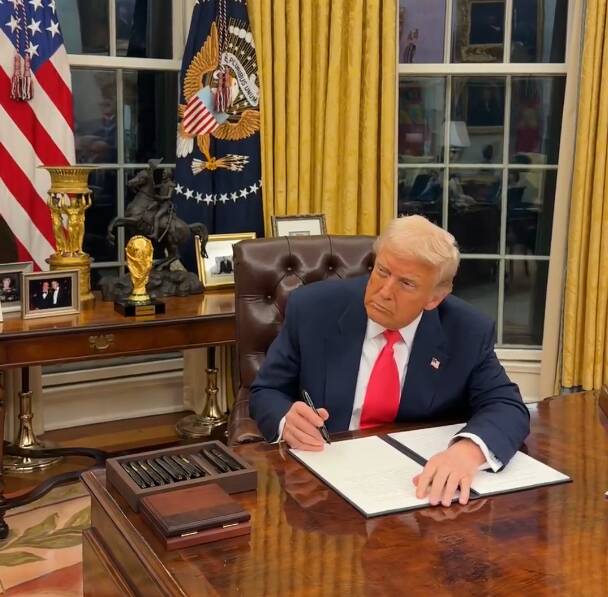In today’s cryptocurrency landscape, two key developments are making headlines. First, Argentina has taken significant steps by implementing new regulations aimed at virtual asset service providers (VASPs). This move is focused on enhancing transparency and stability in the country’s burgeoning crypto ecosystem, ensuring that platforms meet rigorous standards for security and customer protection. The regulations, put forth by Argentina’s National Securities Commission (CNV), require VASPs to register, maintain cybersecurity measures, and adhere to strict financial oversight.
On the other side of the globe, the United States is witnessing a legislative push that seeks to formalize a Strategic Bitcoin Reserve, a concept originally put in place by former President Donald Trump. A new bill, spearheaded by US Representative Byron Donalds, aims to cement this reserve into law, protecting it from potential future changes in administration. This proposed legislation is part of a broader movement among Republicans to bolster the role of cryptocurrencies in the financial framework of the nation.
“For years, the Democrats waged war on crypto,” Donalds stated, signaling a shift in the political attitude towards digital currencies.
Adding to the intrigue in the US crypto scene is the recent disclosure regarding David Sacks, an influential venture capitalist and the newly appointed White House czar for AI and crypto. A recent memorandum revealed that Sacks, prior to stepping into his governmental role, divested over 0 million in crypto and related stocks, a move designed to mitigate conflicts of interest as he embarks on creating legal frameworks for the industry.
As these developments unfold, the intersection of regulation and politics continues to shape the future of cryptocurrency both in Argentina and the United States, raising important questions about user protection, market stability, and the role of digital assets in government strategy.
Key Updates on Cryptocurrency Regulations and Developments
The following points outline significant developments in cryptocurrency regulations and potential impacts on the financial landscape:
- Argentina’s New Crypto Regulations:
- The National Securities Commission (CNV) has finalized rules for Virtual Asset Service Providers (VASPs).
- Regulations include requirements for registration, cybersecurity, asset custody, and anti-money laundering measures.
- Goals of the rules are to ensure transparency, stability, and user protection in the crypto ecosystem.
- Compliance is mandatory, with potential penalties, including blockages and registration revocation for noncompliance.
- US Strategic Bitcoin Reserve Bill:
- A proposed bill by Rep. Byron Donalds aims to codify former President Trump’s executive order on a Strategic Bitcoin Reserve.
- The bill seeks to protect the Bitcoin reserve from future executive disbandment.
- Supporters argue it could integrate Bitcoin more firmly into the U.S. financial strategy.
- Challenges include the need for bipartisan support and a supermajority to pass legislation.
- David Sacks’ Divestment:
- David Sacks and Craft Ventures sold over 0 million in cryptocurrency before his White House role.
- The divestment aimed to minimize potential conflicts of interest in his new position focused on establishing frameworks for the crypto industry.
- This move raises questions about transparency and the motivations behind regulatory actions in the crypto space.
These developments could directly impact users and investors by shaping the legal and operational landscape of cryptocurrency, affecting how they interact with these digital assets.
Comparative Analysis of Recent Developments in the Crypto Space
In a landscape marked by rapid evolution, Argentina and the United States are making headlines with their respective approaches to cryptocurrency regulation. While Argentina finalizes stringent rules for virtual asset service providers (VASPs), the U.S. is venturing into the realm of legal frameworks with a proposed Strategic Bitcoin Reserve, aiming to integrate Bitcoin more formally into national financial strategies.
Argentina’s Regulatory Framework aims to provide clarity and security to the crypto ecosystem, enhancing consumer protection and establishing operational standards for VASPs. This move could attract reputable exchanges looking for a compliant environment, yet it may deter smaller, innovative players deemed too risky under these new requirements. The rigorous measures—including audits and mandatory fund segregation—aim to bolster trust in a sector often criticized for lack of transparency. However, these strict guidelines might push informal or emerging platforms out of the market, potentially limiting the diversity of services available to Argentine users.
On the other hand, the proposed U.S. Strategic Bitcoin Reserve led by Representative Byron Donalds represents a significant pivot towards recognizing and potentially institutionalizing Bitcoin as a foundational element of American finance. This initiative could bolster investor confidence, especially among those aligned with the Republican party, who perceive the current administration as less friendly to crypto initiatives. However, this could also intensify the divide between pro-crypto and skeptic factions in Congress, leading to a potential legislative battleground that may stall useful advancements in crypto integration.
The ramifications of such contrasting strategies in Argentina and the U.S. highlight the complexities of global crypto regulation. For Argentine VASPs, compliance could mean enhanced legitimacy in their operations, potentially attracting more robust partnerships and investment opportunities. Yet, the barriers imposed could also create challenges for startups that may lack the resources needed to meet compliance demands. Conversely, a well-structured reserve in the U.S. could serve as a beacon for institutional investment, but it risks drawing ire from regulatory bodies that might view the initiative as overreaching, leading to increased scrutiny and debate.
Ultimately, these developments could benefit citizens keen on a secure and organized crypto marketplace in Argentina, while also potentially creating a pathway for investors in the U.S. looking to capitalize on the burgeoning digital asset sector. However, the polarization in regulatory approaches could also instigate problems, with emerging market players in both countries facing an uphill battle against entrenched political and economic interests.

















